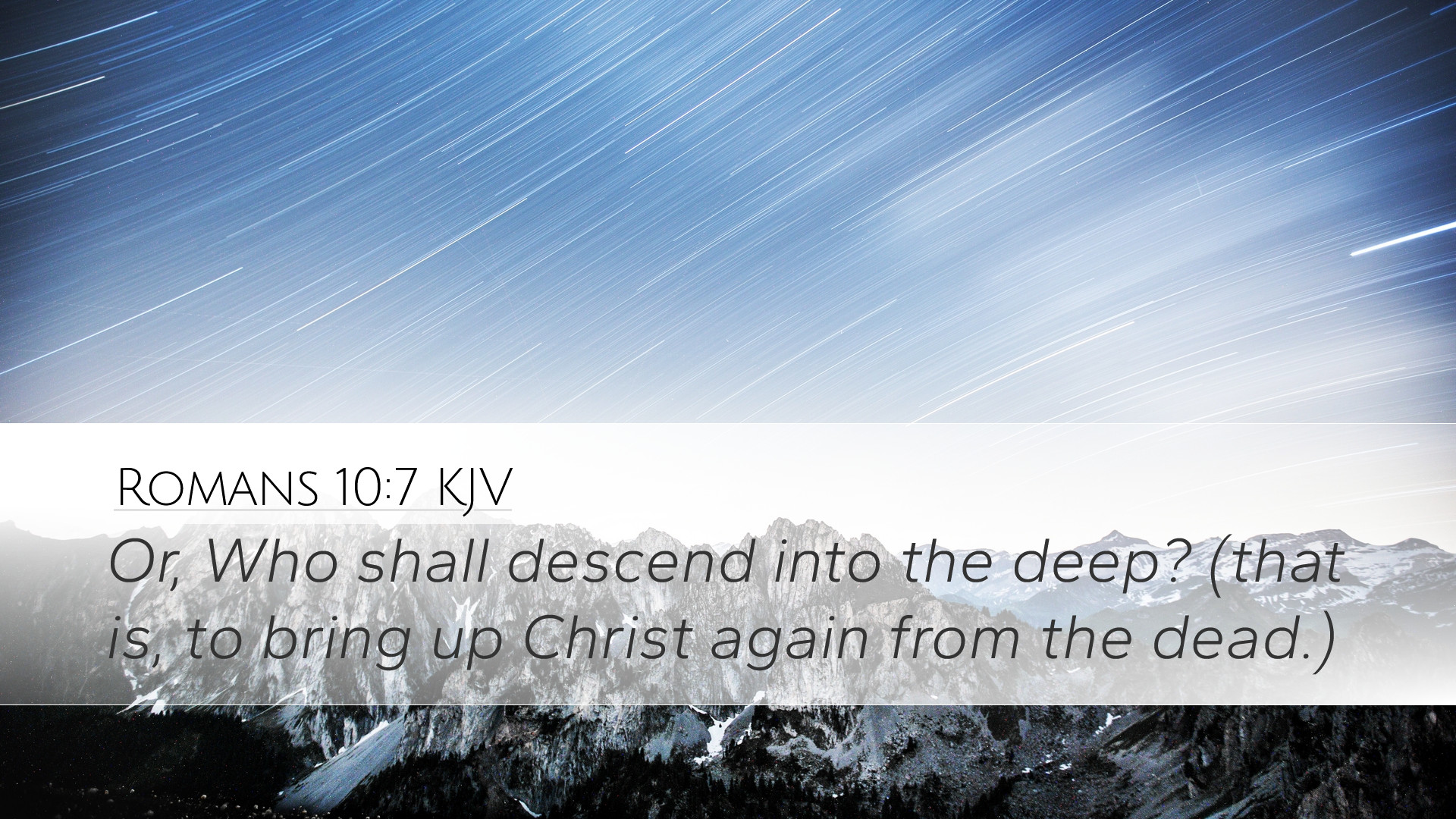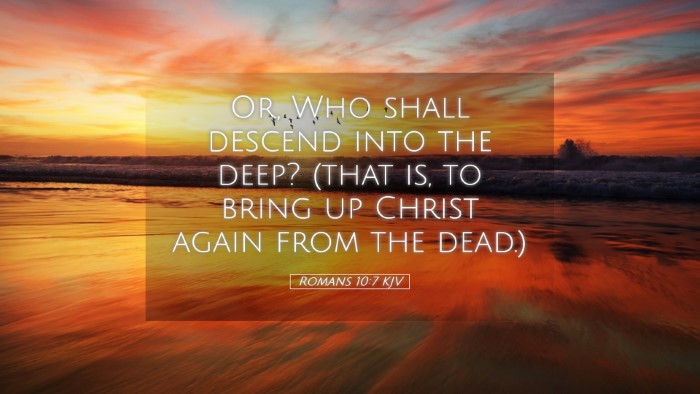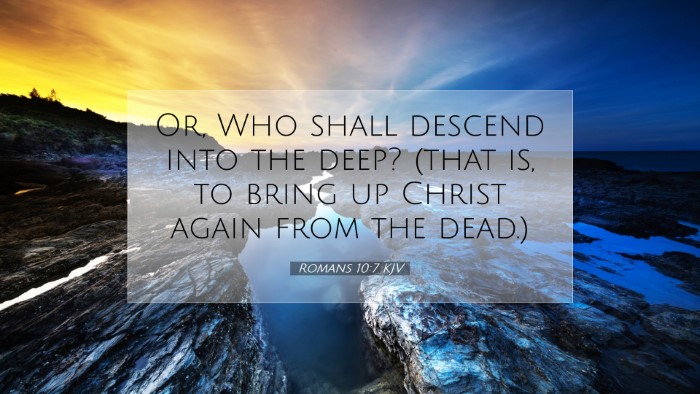Old Testament
Genesis Exodus Leviticus Numbers Deuteronomy Joshua Judges Ruth 1 Samuel 2 Samuel 1 Kings 2 Kings 1 Chronicles 2 Chronicles Ezra Nehemiah Esther Job Psalms Proverbs Ecclesiastes Song of Solomon Isaiah Jeremiah Lamentations Ezekiel Daniel Hosea Joel Amos Obadiah Jonah Micah Nahum Habakkuk Zephaniah Haggai Zechariah MalachiRomans 10:7
Romans 10:7 KJV
Or, Who shall descend into the deep? (that is, to bring up Christ again from the dead.)
Romans 10:7 Bible Commentary
Commentary on Romans 10:7
Romans 10:7 states: "Or, Who shall descend into the deep? (that is, to bring up Christ again from the dead)". This verse is part of a larger context where the Apostle Paul discusses righteousness that comes from faith and the accessibility of salvation through Christ. Below is a summary of insights from various public domain commentaries aimed at providing in-depth understanding for pastors, students, theologians, and Bible scholars.
Contextual Overview
Romans 10 serves to illuminate the theme of faith and salvation. Prior verses emphasize the necessity of confessing faith in Christ for salvation. Paul presents a contrast between the righteousness based on the law and that based on faith, reiterating how faith is the mechanism through which believers attain righteousness.
Understanding 'the Deep'
The phrase 'descend into the deep' symbolizes a profound inquiry related to the nature of Christ's resurrection. It alludes to the grave or the underworld, indicating a hypothetical act of bringing Christ back from death. Commentators provide nuance to this idea:
- Matthew Henry: He interprets this descent as a reflection of human inability to achieve righteousness through works. Just as one cannot bring Christ back from the dead, one cannot attain righteousness apart from Him.
- Albert Barnes: Barnes emphasizes the impossibility of reaching into the grave to extract Christ, thereby illustrating that God’s grace is not contingent on human capability but is God's initiative to redeem humanity.
- Adam Clarke: Clarke sees this notion of descent as a rhetorical question, driving home the argument that salvation is already accomplished through Christ and does not require human action to seek out the dead.
Theological Implications
This verse underscores key theological themes that enrich our understanding of salvation:
- The Need for Divine Intervention: The descent into the deep metaphorically highlights humanity's limitation in attaining righteousness and the necessity for divine grace.
- Faith Over Works: Paul contrasts the works of the law with the faith required to believe in Christ. The verse suggests that salvation is received through faith, not through an impossible quest to retrieve Christ from death.
- Christ’s Authority over Death: Christ's resurrection is central to the Christian faith. This reference underscores that it is Christ who triumphs over death, not humanity's actions or achievements.
Practical Applications for Believers
As believers reflect on this passage, several practical applications emerge:
- Embrace Grace: Understanding that salvation is not something we can 'earn' encourages believers to accept grace wholeheartedly, recognizing their complete dependence on Christ’s sacrifice.
- Confident Faith: Since we cannot reach the depths to undo our sins, we can place confidence in the completed work of Christ, which assures us of our salvation.
- Proclaim the Gospel: Having recognized the ease with which we can access salvation through faith, believers are called to share this message, assuring others that they do not need to endeavor in futile works.
Conclusion
Romans 10:7 serves as a profound reminder of the transformative power of faith in Christ. The insights from commentators such as Matthew Henry, Albert Barnes, and Adam Clarke collectively illuminate the themes of grace, faith, and the impossibility of human works in the face of divine salvation. It calls believers to rest in the truth that Christ’s work is sufficient and final for redemption, encouraging a deep discussion among pastors, theologians, and students of the Word.


